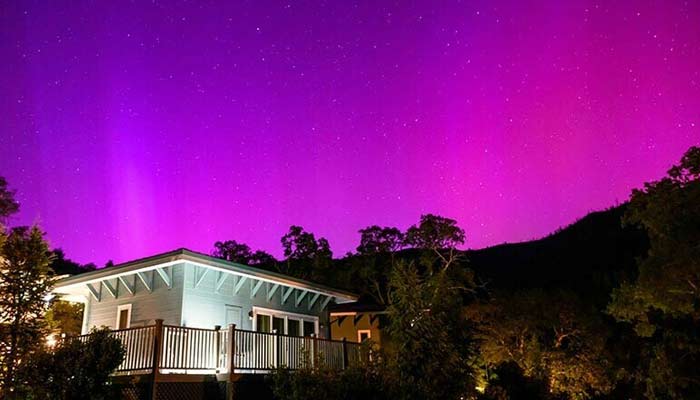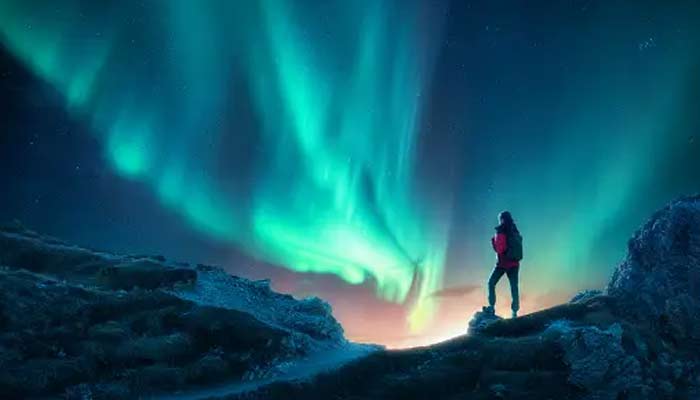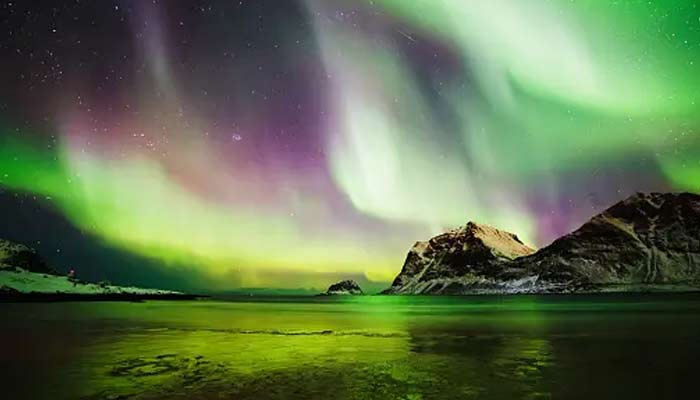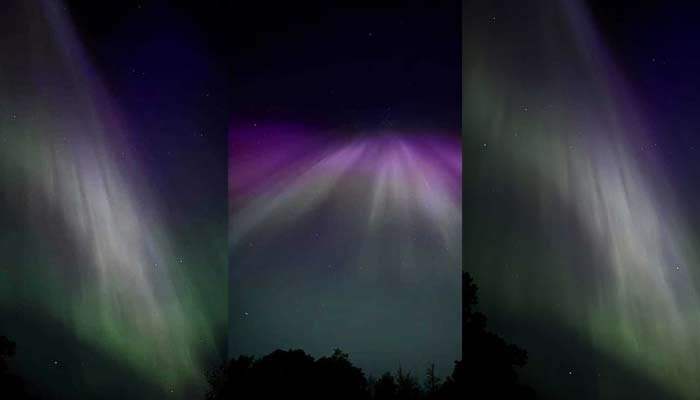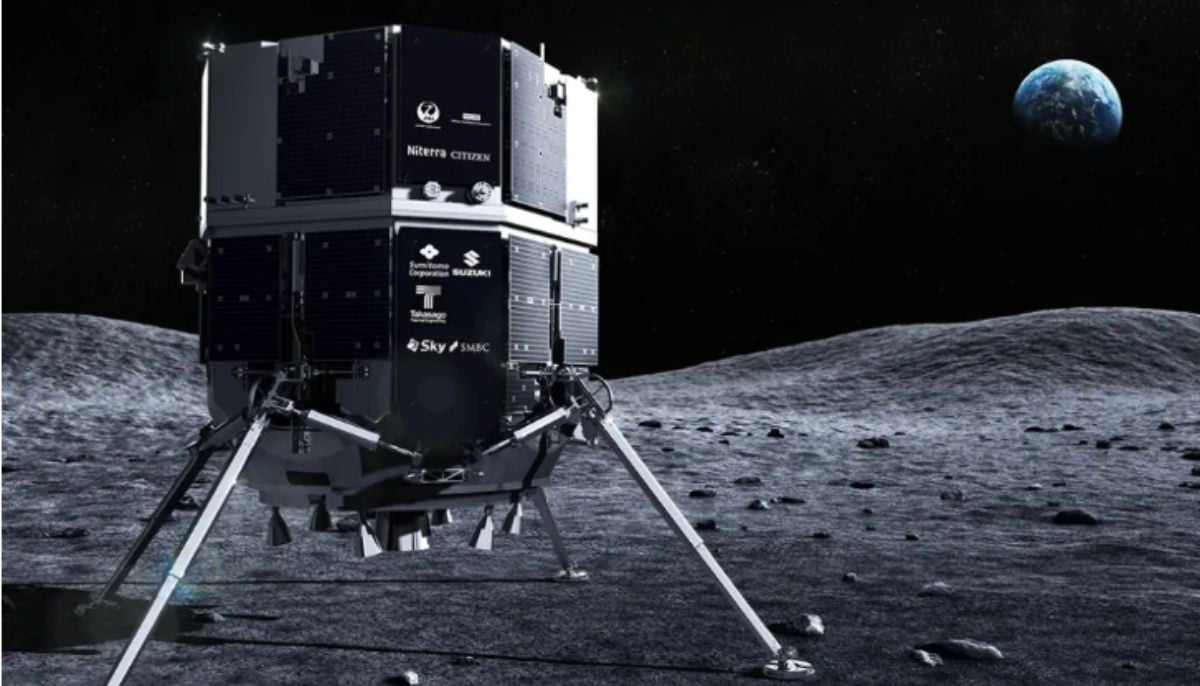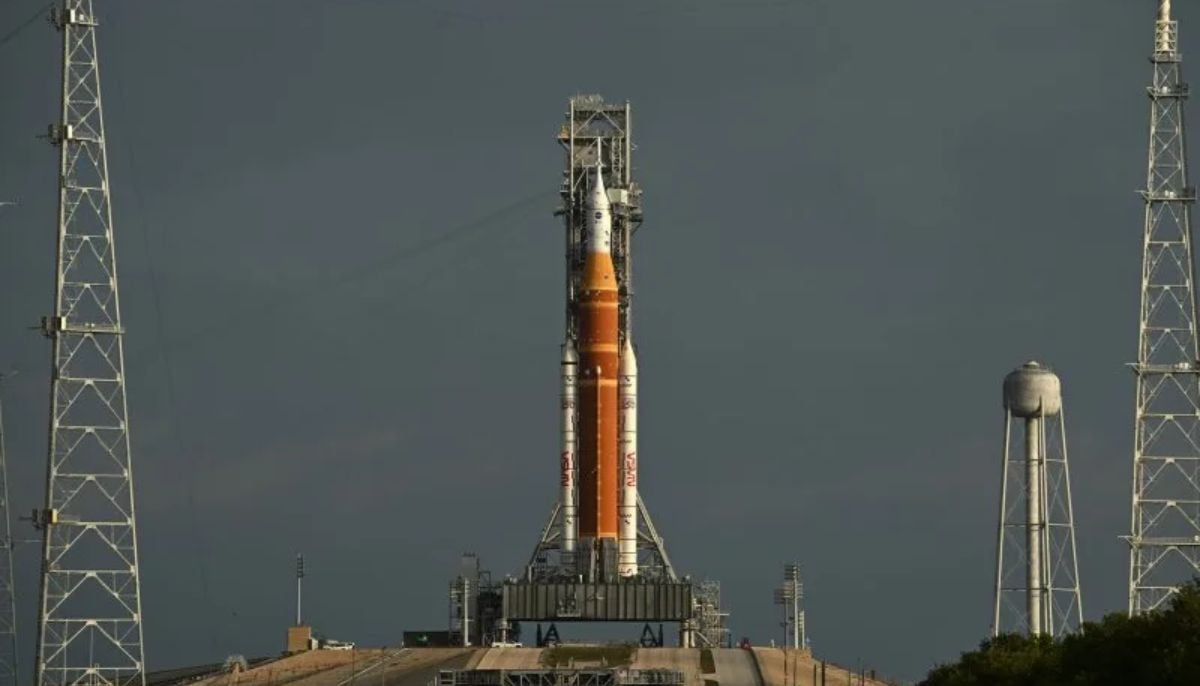Northern lights will be visible again HERE
Massive solar storm let Earthlings see beautiful auroras
To the surprising joy of many who stayed up and kept watch, amazing auroras produced by a major solar storm set the world abuzz Friday night as vivid glowing light streamed into the skies as far south as Florida and the Bahamas.
Good news for those who didn't make it as there might be another opportunity this Saturday night, according to USA Today.
"Overnight, aurora were visible across much of the United States. Weather permitting, they may be visible again tonight," the Space Weather Prediction Center said in a Saturday morning update.
A geomagnetic storm that originated from a sunspot cluster on the Sun is responsible for the spectacle.
An experimental forecast map provided by the Space and Weather Prediction Center indicates that there is a chance that the aurora will be visible across a large portion of the United States, potentially in states like Oregon, Nebraska, Indiana, Pennsylvania, and New York. However, visibility will be contingent upon dynamic elements, such as meteorology.
What is aurora?
Nasa describes an aurora as an "intricate dance of articles and magnetism between the Sun and the Earth."
Strong electrical currents known as geomagnetic storms are produced by the Sun's activity.
The majority of these eruptions are taking place at a sizable, intricate sunspot cluster, according to the NOAA Space Weather Prediction Center.
The magnetic fields of sunspots, which rise and fall on an 11-year cycle, are almost 2,500 times stronger than those of Earth.
-
Archaeologists recreate 3,500-year-old Egyptian perfumes for modern museums
-
Smartphones in orbit? NASA’s Crew-12 and Artemis II missions to use latest mobile tech
-
Rare deep-sea discovery: ‘School bus-size’ phantom jellyfish spotted in Argentina
-
NASA eyes March moon mission launch following test run setbacks
-
February offers 8 must-see sky events including rare eclipse and planet parade
-
New study reveals biodegradable chip aims to reduce e-waste and air pollution
-
Scientists unveil new robotic mission for the moon
-
NASA reschedules Artemis II rehearsal due to Florida arctic outbreak

